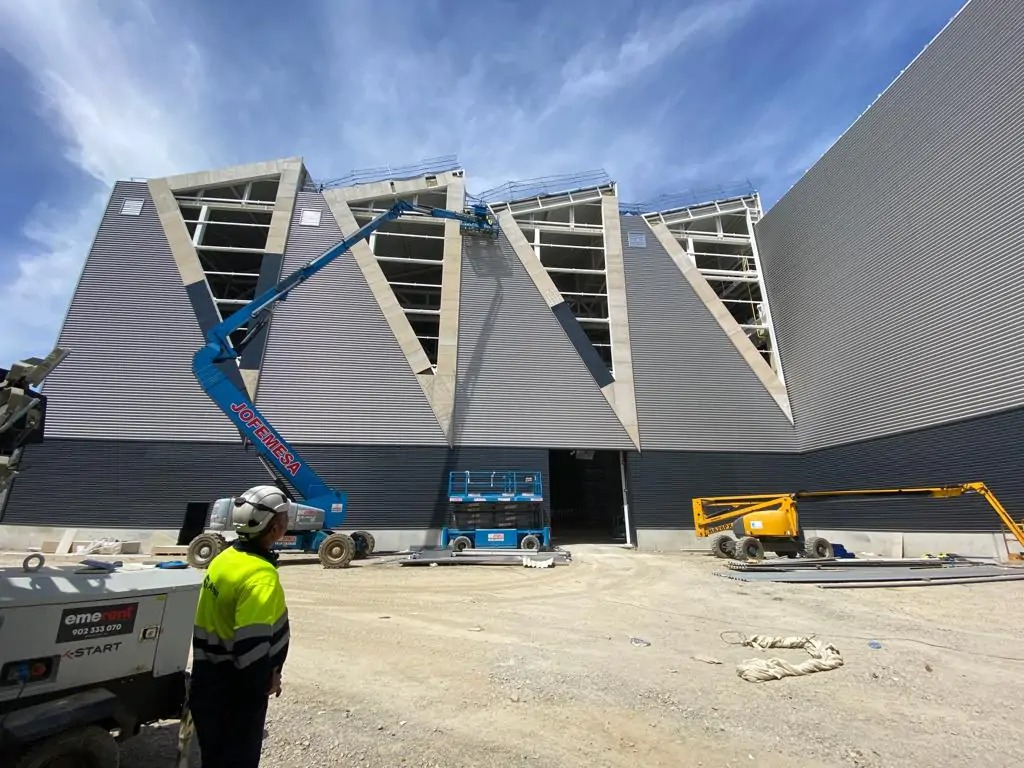
Why Are Industries Racing to Upgrade Their Facade Insulation?
Industries are constantly struggling to maintain energy efficiency. Many industrial buildings still rely on outdated insulation materials. These materials allow significant heat loss in the winter months. During summer, they fail to prevent excessive heat buildup. This increases the need for artificial heating and cooling systems. As a result, businesses see a surge in energy costs every year.
Advanced facade insulation technology provides a highly effective solution. It creates a strong thermal barrier between indoor and outdoor environments. This reduces temperature fluctuations and enhances energy conservation. Insulated facades help maintain comfortable working conditions year-round. Companies save money on electricity and reduce their carbon footprint. Investing in insulation upgrades leads to long-term financial and environmental benefits.
A Hidden Shield Against Noise Pollution
Industrial facilities generate constant noise pollution. Large machinery, ventilation systems, and production lines create loud environments. This excessive noise affects employees and surrounding communities. Workers experience fatigue, reduced concentration, and even long-term hearing issues. Nearby residents often struggle with disturbances from factory operations.
Modern facade insulation materials now include advanced soundproofing technology. They absorb sound vibrations and minimize external noise pollution. Aislamiento fachadas industriales Valencia has gained attention for this reason. By reducing noise transmission, businesses improve workplace conditions. Employees benefit from a quieter, more productive environment. Soundproof insulation also helps industries comply with local noise regulations.
A Secret Weapon for Structural Durability
Industrial buildings face constant exposure to harsh environmental conditions. Rain, wind, and extreme temperatures accelerate wear and tear. Without proper insulation, moisture seeps into building structures. This leads to corrosion, mold growth, and foundation damage over time. Structural weaknesses develop, increasing the risk of costly repairs.
Advanced insulation materials act as a protective shield. They prevent moisture infiltration and reduce temperature-related expansion and contraction. This strengthens the building’s durability and extends its lifespan. Proper insulation minimizes the risk of structural failure. Industries that invest in durable facades avoid frequent maintenance expenses. Long-term savings make insulation a smart investment for any industrial facility.
The Environmental Edge That Reduces Carbon Footprints
Sustainability is now a key concern for industries worldwide. Governments are enforcing stricter environmental regulations on energy consumption. Many companies are searching for ways to reduce carbon emissions. Poor insulation leads to excessive energy use, increasing environmental harm. Heating and cooling inefficiencies contribute significantly to global pollution levels.
Upgraded facade insulation is designed to maximize energy efficiency. It reduces dependency on artificial temperature control systems. This lowers the amount of fuel and electricity required for daily operations. Businesses that adopt sustainable insulation solutions see lower greenhouse gas emissions. Many companies also receive incentives for meeting energy-saving targets. Eco-friendly insulation helps industries comply with environmental standards while cutting costs.
A Hidden Cost Saver for Long-Term Investment
Upgrading to advanced facade insulation requires an initial investment. Some businesses hesitate due to concerns about high upfront costs. However, long-term financial benefits outweigh short-term expenses. Lower energy consumption directly reduces electricity bills. Companies save thousands of dollars annually in heating and cooling costs.
Insulated facades also minimize maintenance and repair expenses. They protect the structure from damage caused by weather and moisture exposure. Industries investing in insulation upgrades often qualify for tax incentives. Governments encourage energy-efficient building improvements through financial support programs. Over time, businesses experience a strong return on investment. Insulation upgrades lead to sustainable growth and higher profitability.
Conclusion
Industries cannot afford to ignore the importance of facade insulation. Energy waste, noise pollution, and structural damage create long-term financial burdens. Advanced insulation technologies solve these problems efficiently. They enhance durability, improve energy conservation, and support environmental goals. As industries move toward sustainable growth, investing in facade insulation is no longer an option—it is a necessity.
Post a comment